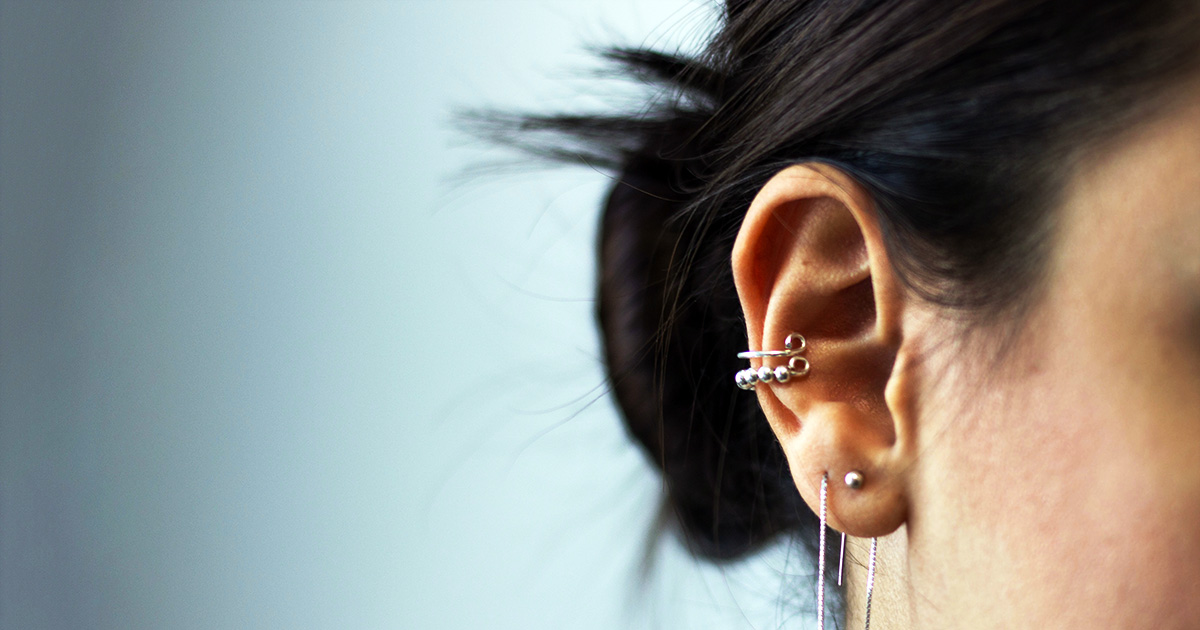
Frequently Asked Questions (FAQs) About Tinnitus
What is Tinnitus?
Tinnitus is the presence of sound that’s not there in your external environment. The brain creates this sound, not the outside world, whether that is a ringing, buzzing, chirping, etc.
What causes tinnitus?
Stress, anxiety, health issues, exposure to noise, ototoxic medications, wax in the ears, etc. However, we also know the pathway in the brain that the tinnitus is taking and how to treat it.
Is there an age range tinnitus impacts?
It can happen at any age.Noise exposure from concerts in someone in their 20’s to ages 50+ from factory and farm equipment use. Tinnitus does not discriminate. We have treated patients as young as teenagers all the way up to age 90. The average patient age range in our office is 40’s and 50’s.
Why are people told there is no treatment for tinnitus?
If it is not medication or surgery, often people think nothing can be done. What we base our therapy on was done over 10 years with 1,000 tinnitus patients. Long term good benefit is there. To say there is nothing that can be done is just not true with today’s recent studies. There is something we can do. This is the reason behind the name Hope Hearing – there is hope and relief out there.
How many people experience tinnitus?
It’s estimated that at least 50 million American adults experience tinnitus, or one out of every five people.
Why do people experience tinnitus?
A wide variety of things can cause tinnitus: exposure to loud sounds, over 250 different ototoxic medications, stressful events (such as the loss of a loved one), temporary blockage of sound from a sinus infection or cold.
Can you help those WHO have had tinnitus for a long time?
Absolutely, but the sooner you address it, the better. We treat those who experienced tinnitus for weeks up to year and decades. Some people come in thinking everyone has tinnitus because they’ve had it for a long as they can remember. Tinnitus is a neural cycle in the brain and it tends to embed itself deeper the more the cycle continues, so the sooner you address it, the better.
How do you know if you have tinnitus?
If you’re wondering if you have tinnitus, start by evaluating your symptoms. First, do you often hear a sound that you know is not externally present? If so, what is this sound like? Would you describe it as…
Ringing, Roaring, Clicking, Chirping, Rushing, Whistling, Buzzing, Hissing, or Humming?
Or perhaps it sounds like a heartbeat in your ear?
Does it have to be in both ears?
The noise may seem to come from one ear, both ears, your head, or a distance. In addition, it can be steady, intermittent, or pulsating, toward the back of your head.
Do you have to have hearing loss to have tinnitus?
No, you don’t. You can have completely normal hearing and still have tinnitus. Often it can be associated with hearing loss due to noise exposure, but there are a lot of catalysts. We treat hearing loss as well at our office. You don’t have to have tinnitus and hearing loss. They can be two separate issues.
What steps should someone take to treat tinnitus?
First, contact our office and come in for an evaluation. There, we will do a thorough case history and evaluation of the auditory system to find out what’s going on. It could be something as simple as wax or fluid in the ear, but you will never know until we see you.
How do you follow-up with your patients to ensure success?
We keep follow-up appointments to every 3-4 months max and really make sure patients are staying within the guidelines of therapy. The staff at Hope Hearing work together as a team to make sure everyone is properly taken care of as soon as they make their first phone call. The staff is a lot like family, and patients become like that too. We really want to help improve their quality of life.
Do you only treat tinnitus at your office?
Hyperacusis (sensitivity to sound) can accompany tinnitus and our therapy addresses that sensitivity also. Tinnitus is similar to inflammation of the auditory system, so often when you throw another loud sound on there, it’s worse. We can also address just typical hearing loss with no tinnitus. Being able to hear loved ones, friends and family is such an important part of everyday life.
Is tinnitus constant or can it be intermittent?
It can be associated with a temporary blockage of sound from a cold or sinus infection. Once the cold is gone, the tinnitus will go away (if temporary). The side effects of a loud concert can cause tinnitus for 24-48 hours, which is called a temporary threshold shift. We treat tinnitus that is chronic or persistent.
When would you hear tinnitus?
You can hear tinnitus at any time, but it is most often heard in quieter environments with no background noise. When I had tinnitus, I would hear it in louder environments, but it was most obvious in quieter places. It is only heard by the person who has tinnitus. This is called subjective tinnitus. There is such a thing as objective tinnitus. This is when someone else can hear the tinnitus too, but this is extremely rare. It’s usually also heard by a specialist with a stethoscope.
How does tinnitus impact everyday life?
It can have a huge impact on people’s relationships. It can make an easy dinner conversation, group party or time with grandchildren all very difficult for someone to hear and understand. We’d all love the ability to hear spouses, loved ones, family members and friends clearly.
Can tinnitus impact healthy sleep?
Most definitely! It can affect one’s ability to go to sleep or stay asleep due to the annoying sound and, because of that, their quality of sleep is affected.
Can tinnitus impact mental health?
Tinnitus often impacts hearing and therefore one’s ability to communicate. Whether it is conscious or subconscious, you are always tuning it out, so it can impact people much more than they realize. People with tinnitus can find themselves more irritable, anxious, moody and can have trouble relaxing. Long-term tinnitus can also cause depression. People feel like they don’t have any downtime or enjoyment of peace and quiet, which is important to reset.
Are there any illnesses associated with tinnitus?
Diabetes, high blood pressure, head and neck injuries, otosclerosis (which is the hardening on the bones in the middle ear), TMJ/neck or jaw issues, allergies or Meinere’s Disease. Hearing loss is very common with tinnitus too, but you do not have to have hearing loss to experience tinnitus. Hyperacusis can develop from tinnitus, which is a sensitivity to sound. Since the auditory system is already inflamed, this can exacerbate things with more sound. We treat hyperacusis with the same things we do for tinnitus. People with tinnitus will often notice a sensitivity to sounds that use to be more comfortable. Simple things like a hammer on a nail become extra sensitive.
What makes tinnitus worse?
- Loud sounds
- Stress
- Ototoxic medications



